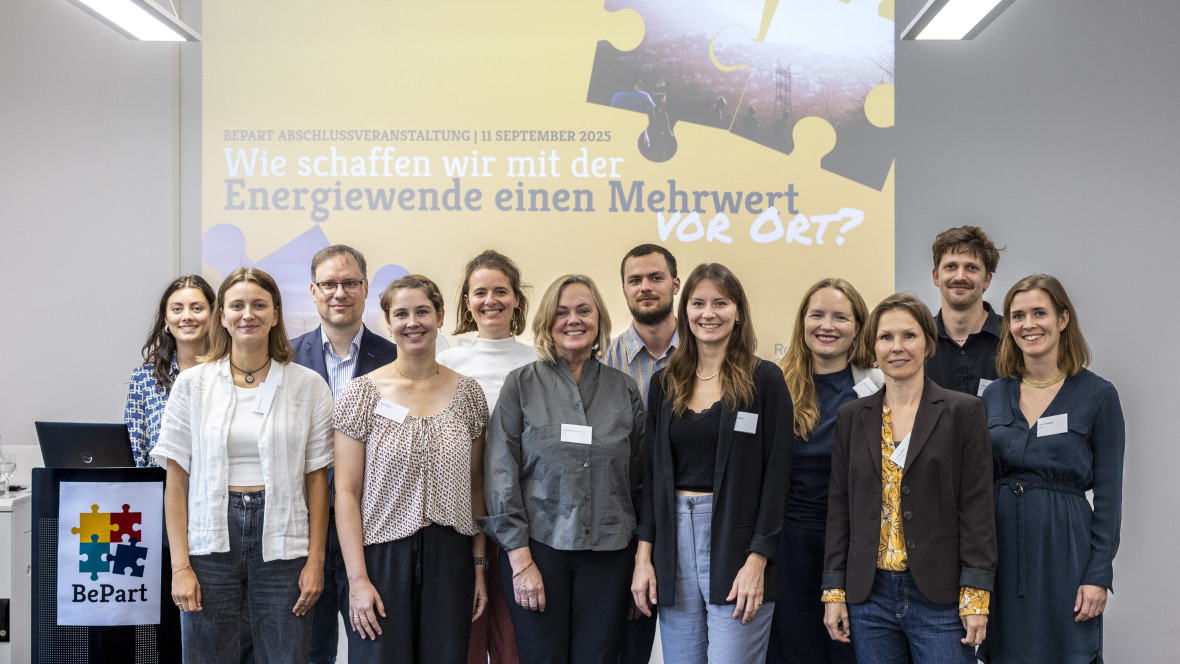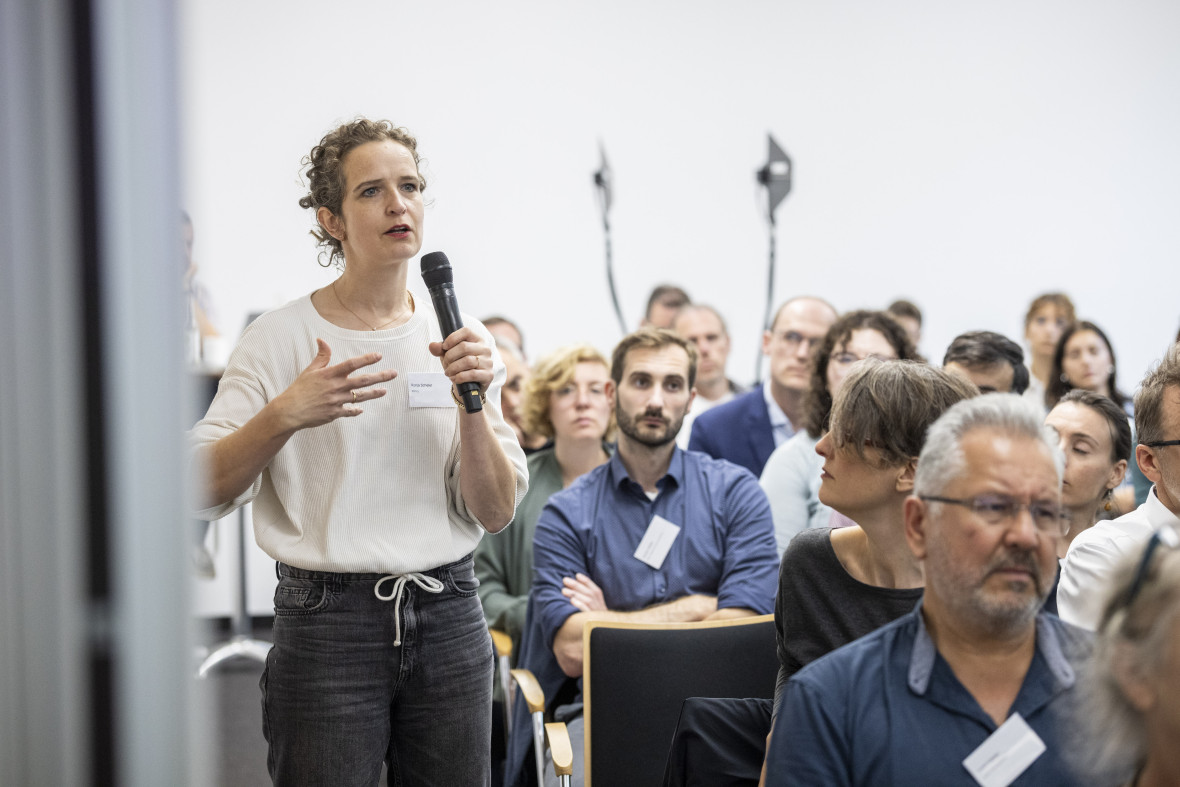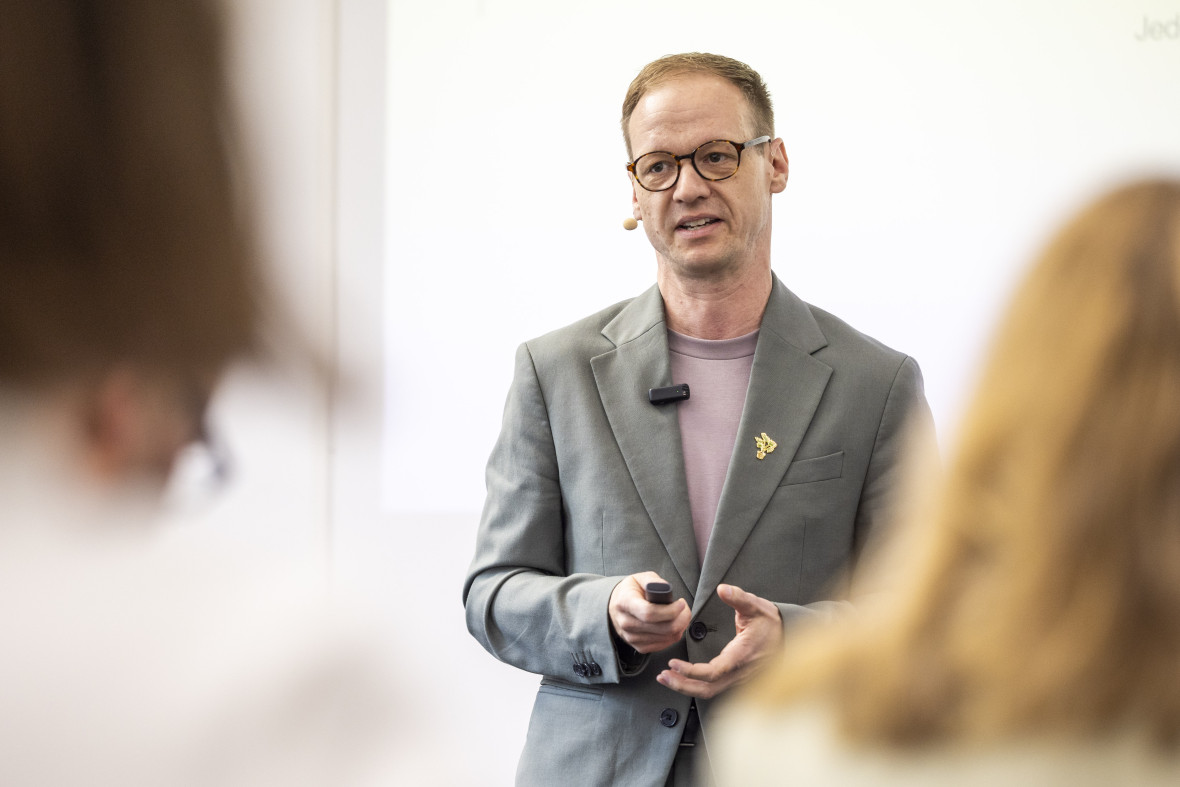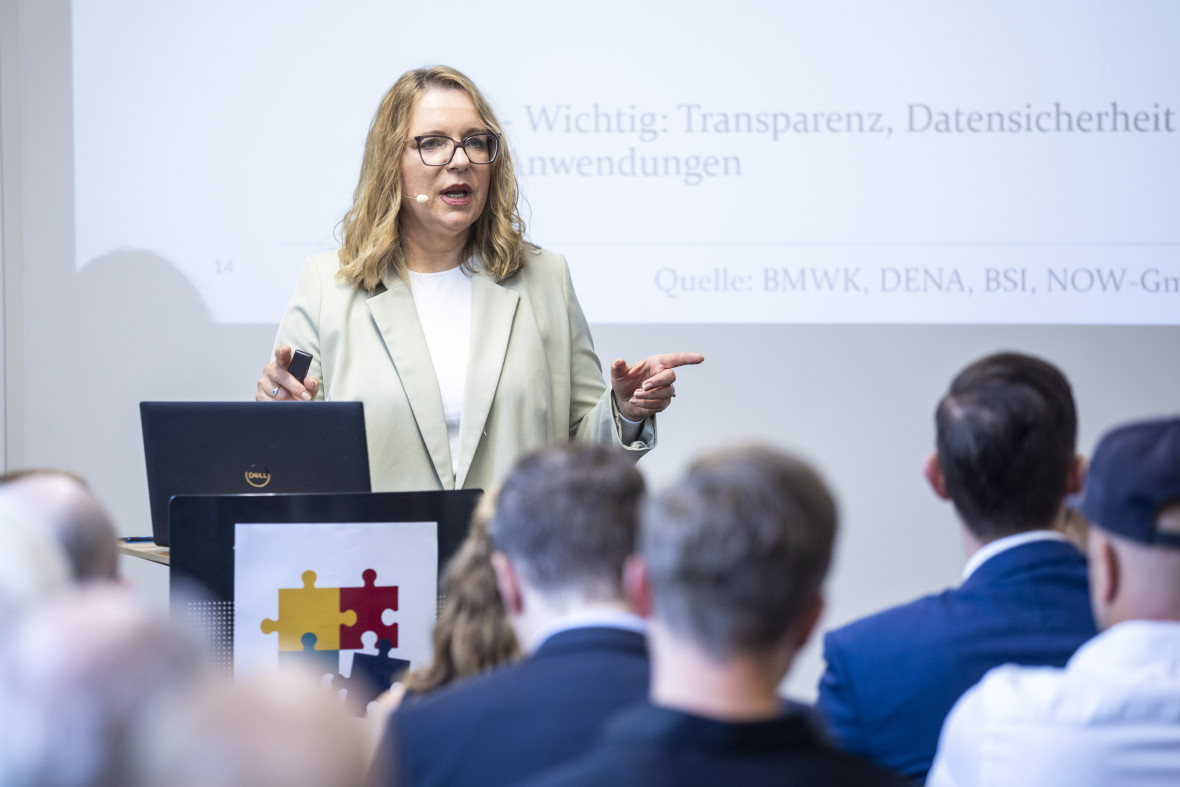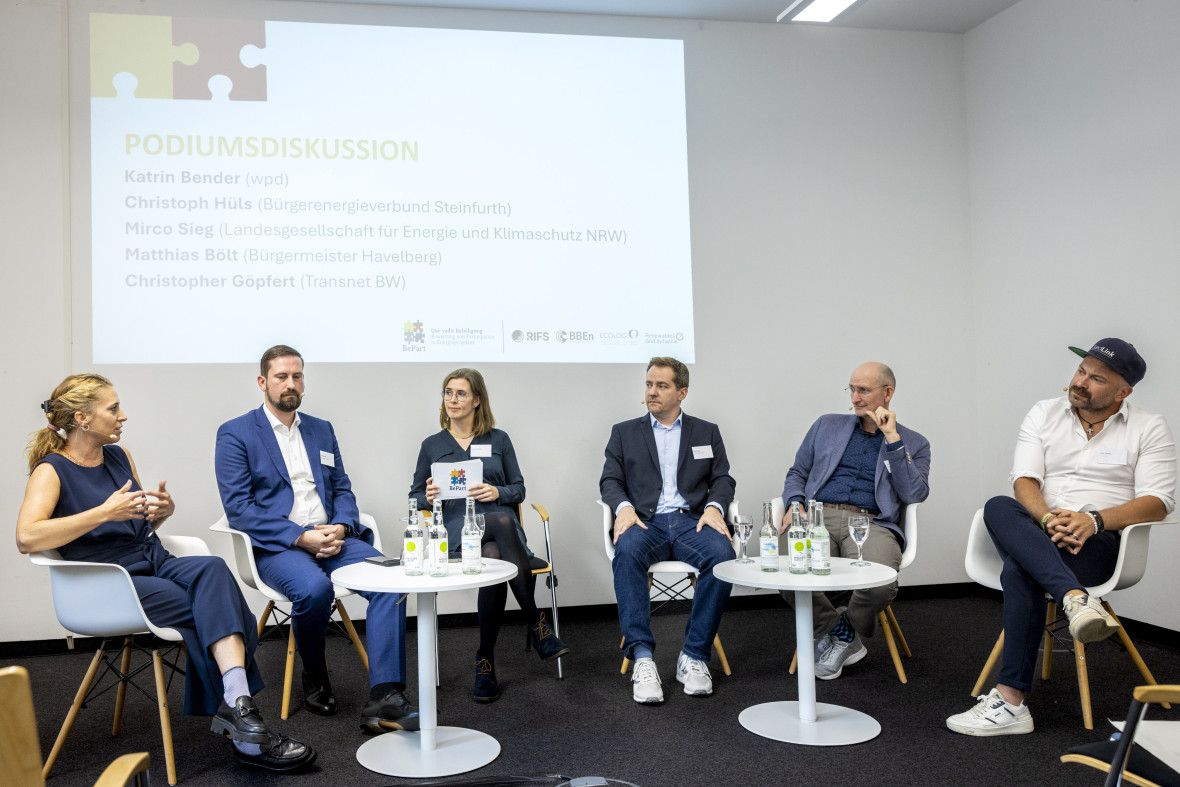Public Participation Is Not Holding Back the Energy Transition
10.09.2025
Public participation is not slowing the energy transition. On the contrary, it helps resolve conflicts and build acceptance, making participation a worthwhile investment. This is the conclusion of a new report published by the Research Institute for Sustainability (RIFS), the ECOLOG Institute, Bündnis Bürgerenergie e.V. (Citizens’ Energy Alliance), and the Renewables Grid Initiative. The report draws on findings from the joint research project “Quo vadis, participation? How participation affects energy projects” (BePart). The researchers examined participation processes linked to around 200 projects for the development or expansion of wind energy, solar power, and transmission grid infrastructure across Germany. The project’s final report was presented in Berlin on 11 September 2025.
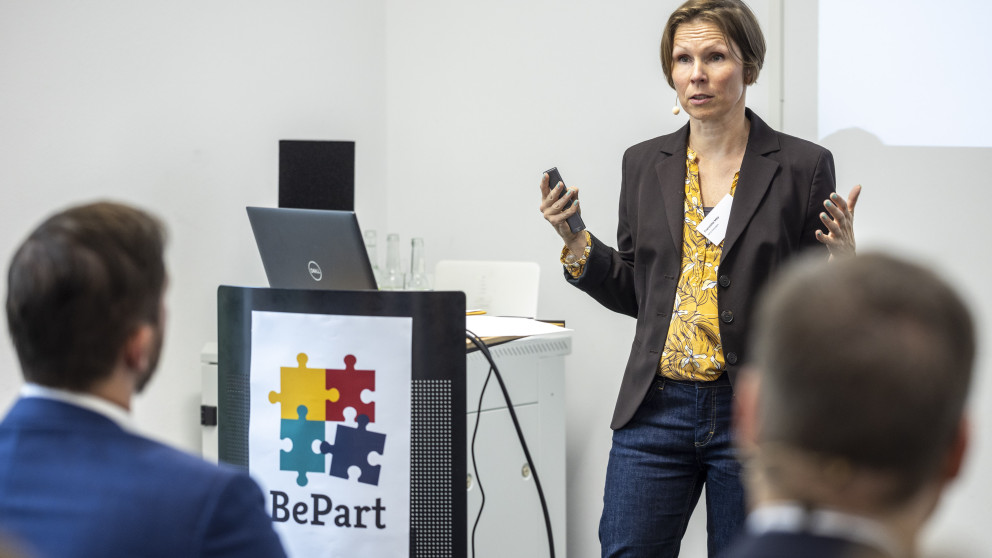
“Municipal and citizen participation is emerging as a crucial factor in driving the energy transition. While often hailed as the key to a renewables build-out with fewer conflicts, it is also viewed by some as a potential barrier to rapid implementation. Our study set out to examine what role participation actually plays in shaping both the pace and public acceptance of energy transition projects,” explains project leader Franziska Mey from RIFS. The researchers found that when participation processes are well-planned and adapted to local conditions, they can reduce conflicts, increase acceptance, and stimulate regional economies, helping to accelerate the expansion of renewables.
Permitting and planning processes more likely to cause delays
The report reveals clear differences across technologies, with participation processes having little to no impact on project timelines for onshore wind and ground-mounted solar infrastructure. In nearly half of the cases examined, delays were primarily due to official permitting and planning procedures, while participation itself played only a minor role. Only in isolated instances did informal public involvement (in connection with modifications to existing plans, for example) result in delays.
In the case of grid expansion projects, however, participation and specifically communication measures did occasionally slow progress. The researchers attribute this to the complexity of relevant planning and permitting procedures and the larger number of stakeholders involved. Despite this, participation still benefitted projects by helping to build trust in the fair implementation of the energy transition.
Financial participation and conflicts
The researchers also found a clear link between participation and conflicts: Survey data and interviews revealed that, in many cases, existing disputes prompted efforts to broaden participation – often by ensuring that communities shared in the financial benefits.
Project managers (particularly those working on grid expansion projects) frequently responded to conflicts by engaging in intensive communication efforts. These included information sessions, dialogue events, and, in cases of deep-seated disputes, formal mediation procedures. The researchers recommend complementing these approaches more strongly in the future by strengthening local value creation, for example by allocating contracts to local firms or through financial citizen participation.
In almost half of the wind and solar projects examined, municipalities already benefit directly. In some federal states, such as Brandenburg, this is already mandatory. However, such levies and other schemes do not automatically reduce the potential for conflict, as the researchers found. Instead, regional dynamics play a greater role: willingness to cooperate, scepticism toward change, and susceptibility to misinformation were often more decisive than financial participation.
In regions with already high levels of wind energy development, some communities showed early signs of project overload. Interviewees indicated that participation measures were unlikely to alter this. They also reported growing polarization within municipal decision-making bodies, which further complicated expansion efforts.
Standards and seals for good participation practice can help
Looking ahead, the researchers recommend that project developers adopt more targeted communication strategies and work closely with energy transition advocates in communities. These actors can play a vital role in building trust and serving as bridges between developers and local communities. When choosing participation formats, developers and municipalities should take local conflict dynamics into account, tailoring participation to the circumstances. Where conflicts have become entrenched, professional facilitation and more complex mediation processes may be required. As many smaller municipalities lack capacities and funding, state governments should move to provide the necessary resources.
The analyses also show that successful participation in completed projects strengthens energy transition outcomes. The researchers therefore argue for establishing legal requirements for participation where appropriate – while ensuring that these do not hinder locally tailored solutions. Some districts, including Steinfurt (North Rhine-Westphalia) and the state of Thuringia, have already introduced standards and seals for best practice, providing a blue print that others could follow.
Mey, F., Ebersbach, B., Holstenkamp, L., Kriel, C., Meese, L., & Rokitta, L.-M. (2025). BePart – Zur Wirkung von Beteiligung in der Energiewende. RIFS Brochure. https://doi.org/10.48481/rifs.2025.032
BePart is the first research project to evaluate different forms of participation in energy projects across Germany using both qualitative and quantitative methods. The findings of this research highlight the role of participation in addressing energy transition challenges and responding to local needs. Contributing to the dialogue between policymakers and practitioners, this research will ensure that future energy project planning is more effective and harnesses regional development potentials. BePart is funded under the 7th Energy Research Programme in the sub-area “Energy Transition and Society” and supported by the Federal Ministry for Economic Affairs and Energy (Grant: 03EI5242A).
Impressions from the event
Contact

